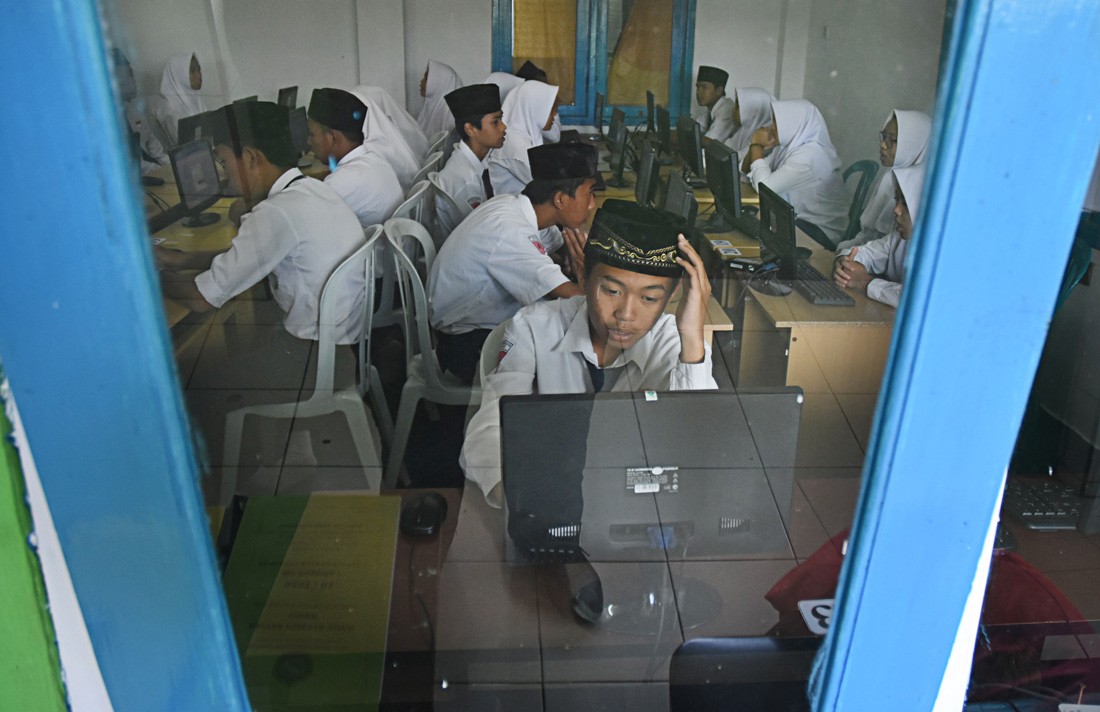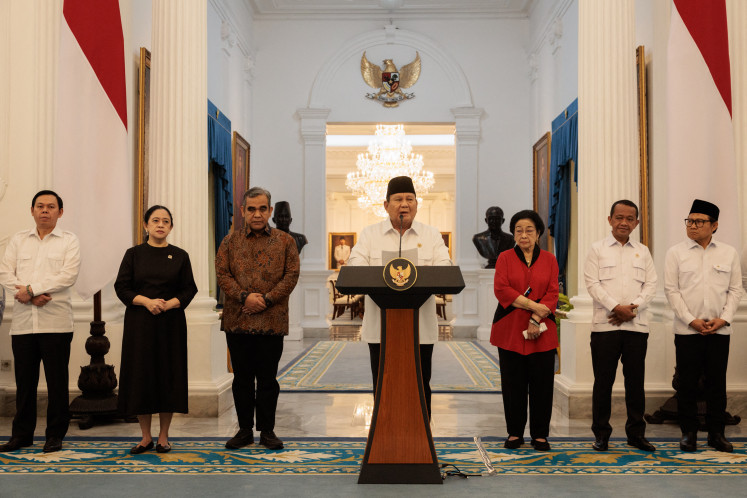Popular Reads
Top Results
Can't find what you're looking for?
View all search resultsPopular Reads
Top Results
Can't find what you're looking for?
View all search resultsEDITORIAL: Elusive education reform
Our education system has not really made a break with the past, in which students were trained to follow instructions and critical thinking was diminished at the behest of an authoritarian regime.
Change text size
Gift Premium Articles
to Anyone
I
n response to complaints about the difficulty of the math test during the National Exam for junior high school students a couple of weeks ago, Education and Culture Minister Muhadjir Effendy apologized. It was indeed an effort to console the students, but the government’s decision to raise the bar higher was justified, otherwise Indonesian students will continue to lag behind their counterparts — their future competitors.
Many of the students claimed to have never seen such hard questions, and this high level of difficulty could undoubtedly provide an excuse for their poor showing when the results of the National Exam are announced on May 3. There should be no justification for the grumbling as the students had prepared for the final test by, among other things, taking after-school classes and a series of tryouts.
Muhadjir said the exam followed an internationally approved education reform concept called High Order Thinking Skills (HOTS). Under the scheme students are required to analyze, evaluate and create solutions to problems instead of just memorizing theories, which most of the country’s students have so far learned in school.
Behind the choice of the new approach was the government’s intention to up the standard of national education, which Muhadjir considers to be low, as evident in the country’s sub-par performance in a series of Program for International Student Assessment (PISA) surveys. The survey, conducted in 72 countries every three years by the Organization for Economic Cooperation and Development (OECD), saw Indonesia most recently rank 62nd in 2015, climbing from 71st in 2013.
Indonesia has continued to fall behind fellow Southeast Asian middle-income neighbor Vietnam, not to mention Singapore, which has consistently topped the PISA list. The most recent PISA survey discovered that 75.7 percent of Indonesian students who sat the tests — science, mathematics and reading — performed below average.
Of course the PISA survey does not portray the whole state of Indonesia’s education, but it shows what the country still lacks in its bid to realize the constitutional mandate of educating the people. The survey results should therefore spark questions about where the education budget, which accounts for 20 percent of the state budget, has gone.
It turns out the PISA test and the National Exam share one thing in common. As in the recent National Exam, many students who sat the PISA test failed, as the questions were different from what they had learned in class.
As we observe National Education Day today, we are reminded that our education system has not really made a break with the past, in which students were trained to follow instructions and critical thinking was diminished at the behest of an authoritarian regime.
The reformasi nearly 20 years ago resulted in a new awareness and political commitment to fulfill the right to education for all. It has now been translated into a huge budget for, among other things, 12 years mandatory education and other programs to boost teachers’ quality.
The next step is to reform the educational culture — a Herculean task that needs, first and foremost, political will.










